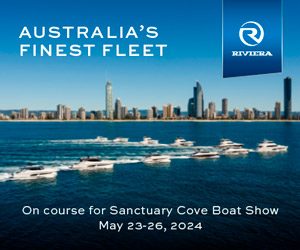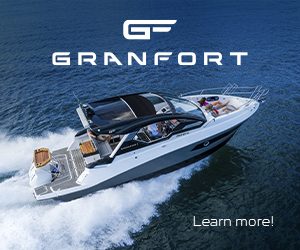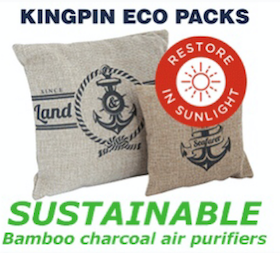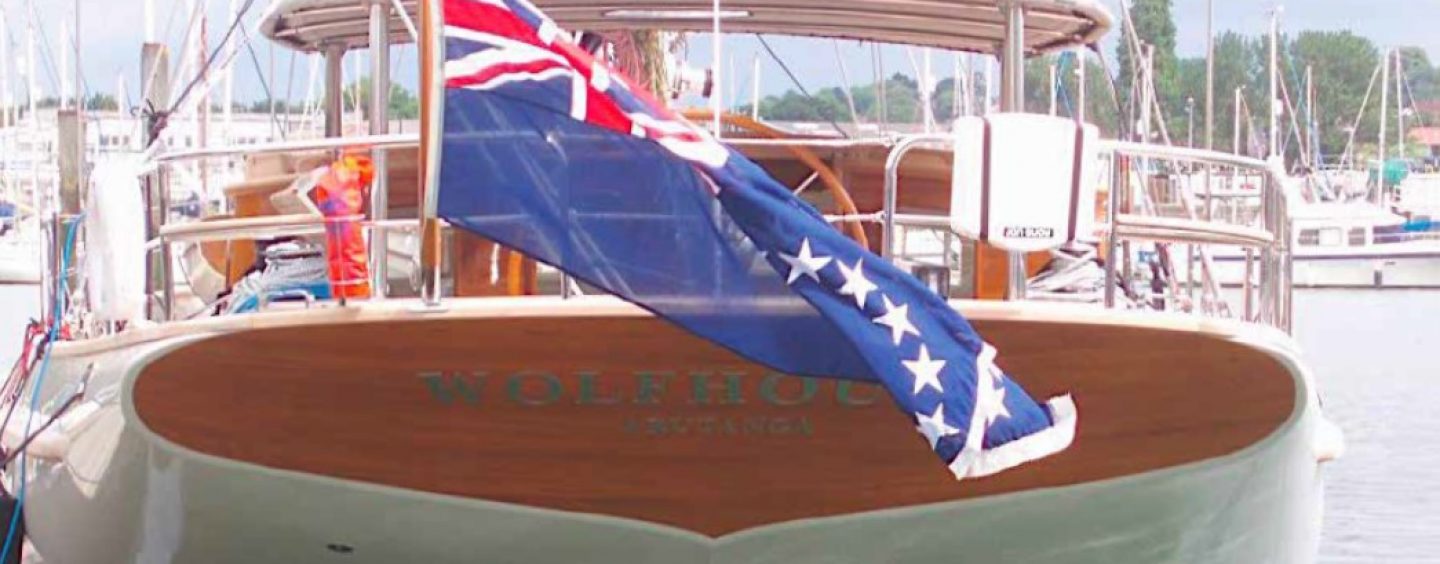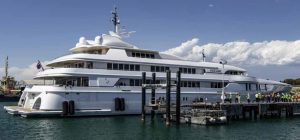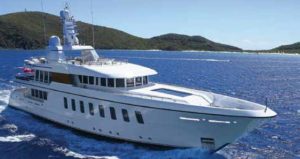By Capt. John Kavanagh, Principal Lawyer – Master Mariner
There are potential advantages for Australian boat owners to register or ‘flag’ their boats on the shipping registers of other nations. Such registries, known as ‘open registries,’ or more colourfully as ‘flags of convenience’, compete internationally to attract ships to their flag. Open Registries offer ship registration services based on efficient service delivery and cost effectiveness. Most of the world’s shipping is registered in open registries such as Liberia, Panama and Marshall Islands, to name a few of the larger registers. Such nations become known as the ‘flag state’ for the ship.
The advantages of an open register are also available to the Australian boatowner, and this article will briefly describe how and why an Australian boat-owner might consider flagging their vessel in an open registry, after first considering the requirement to flag in Australia.
AUSTRALIAN FLAG
By contrast to Panama and Liberia, Australia is a ‘closed registry’, which means that the Australian ship register is only available to an Australian-owned ship. The opposite is also true, in that an Australian-owned ship must be flagged in Australia.
The great majority of Australians own their boats as ‘Australian Ships’. That is to say, the boat is owned by them personally or through an Australian company structure. That makes the boat an ‘Australian-owned ship’, and that is sufficient to ensure that the great majority of Australian-owned ships are registrable in Australia. Indeed, the Shipping Registration Act 1981 (SRA) requires a ship that is Australian-owned to be registered in Australia on the Australian General Shipping Register if:
> The ship is greater than 24 metres in tonnage length (note that tonnage length is not the same measurement as length overall), or
> The ship intends to go on an international voyage, regardless of its length.
It is an offence for an unregistered ship to depart from an Australian port to a place outside Australia (s68 SRA) or to depart from any foreign port (s69 SRA) unless the ship is registered with the Shipping Registration Office, which is part of the Australian Maritime Safety Authority.
The effect of these registration laws are that all Australian-owned ships greater than 24m in tonnage length, and all Australian-owned ships going on international voyages must be registered in Australia.
But that is not the end of the story. The registration obligation only applies to legal ownership of a Vessel, and Australians can still own vessels beneficially through another legal structure. So, there is nothing stopping an Australian owner of a boat from transferring their legal ownership to a foreign company that they also control. By doing so, the choice of open registries becomes available.
FOREIGN FLAG
One of the quirks of maritime law is that the flag of a ship applies the laws of the flag state to the ship wherever in the world it may be: whether on the high seas or cruising along the coast or in port. In some circumstances, the laws of a coastal state (the country where the vessel is being operated) may also apply to the vessel. So for example, Australia requires foreign-flagged vessels to take marine pilots before entering ports, and also applies immigration and quarantine laws to ships entering Australia. But on the whole, the laws that apply to a Vessel all of the time are the laws of the flag state. These laws will generally govern marine safety, employment, licensing of crew and so on.
Importantly, there is a maritime law principle known as ‘the internal economy rule’ that gives the laws of the flag state priority over the application of the laws of a coastal state when the issue under consideration is a matter of the ‘internal economy’ of the ship. So in general terms, the owner of a foreign-flagged ship with a foreign crew is not required to comply with the Australian Fair Work Act (although there are some exceptions for coastal trading permits and where crews of ships are majority Australian).
The advantages of foreign flag are then available for a boat that may be controlled by Australians, but legally owned by a foreign company and registered in a suitable open registry.
WHY CONSIDER FOREIGN FLAG?
There is a range of benefits associated with registering a boat in an open registry, including cost, efficiency and privacy advantages. The laws of the flag state that apply to their vessels is a vital consideration.
There is a tendency in many first world nations for regulation to become increasingly complex and for regulators to become increasingly bureaucratic in their approach to marine safety. By contrast, open registries tend to use specialist service providers in the administration of the registry, often in places outside of the country. For example, Liberia is administered by a private American company from New York, USA, and the Marshall Islands registry is administered by another private American company from Virginia, USA. These Open Registries also employ a range of specialist flag state inspectors and recognised organisations (generally class societies) to allow shipowners to certify and maintain their vessels to the relevant international maritime standards required by all coastal nations.
The comparable advantages of an open registry against the use of traditional closed registries (such as Australia) are almost self-evidenced by their enormous success. The last 40 years or so have seen that vast majority of the world’s merchant fleet be flagged in open registers.
These advantages are also available to the Australian boat-owner, at relatively modest cost.
 ST KITTS & NEVIS (SKAN) OR MARITIME COOK ISLANDS (MCI)
ST KITTS & NEVIS (SKAN) OR MARITIME COOK ISLANDS (MCI)
At Pacific Maritime Lawyers, we are the Australian registrars for the Caribbean nation of St Kitts & Nevis (SKAN) and we routinely assist Australian owners to flag their boats with SKAN. The SKAN register is administered from London, and SKAN law is based on British Maritime Law that is still the international standard across the world. SKAN is a reputable flag, and is increasingly becoming a popular option for Australians. Closer to home, Maritime Cook Islands (MCI) is an increasingly popular choice. Not only does the flag of the Cook Islands look attractive flying from the stern on a boat, but the MCI law is based on New Zealand maritime law, which shares the same heritage as Australian and British Maritime Law. These are not the only options of course, and we can assist with the range of options available.
CAN I OPERATE A FOREIGN-FLAGGED VESSEL IN AUSTRALIA?
The short answer is, Yes. All vessels intended to be operated in Australia indefinitely need to be ‘imported’ and GST and Duty paid. But once that has been done, there is no legal impediment to a foreign-flagged vessel operating in Australia indefinitely. If the vessel is carrying passengers or cargo, then:
> it may operate on intra-state voyages (such as operating in Queensland waters only) without any restriction;
> Inter-state voyages are also available depending on the nature of the ship and cargo (if any) through the coastal trading permit scheme.
We regularly find that boat owners are under the impression that a vessel being operated in Australia indefinitely must be Australian-flagged. That is not the case.
If you want to know more about foreign flag for your boat, please reach out to us at info@pacificmaritimelawyers.com.au.
Published in print January-March 2023


